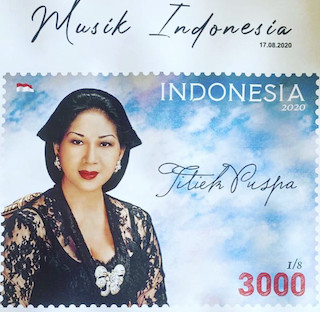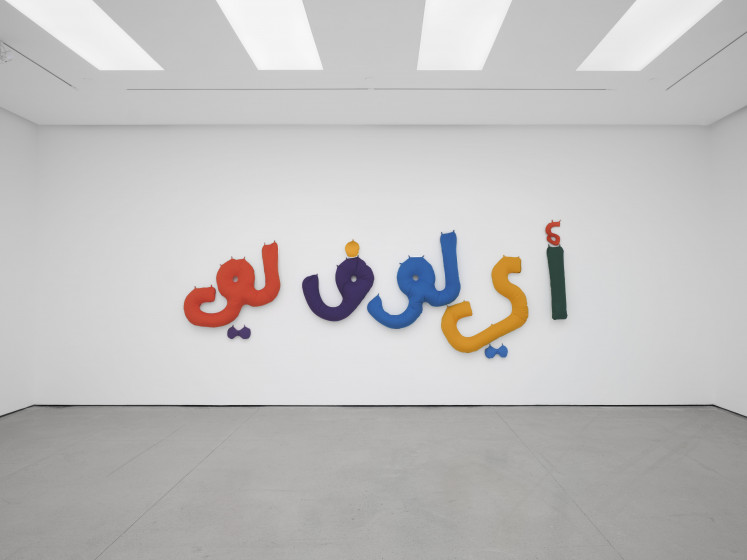Popular Reads
Top Results
Can't find what you're looking for?
View all search resultsPopular Reads
Top Results
Can't find what you're looking for?
View all search resultsIndonesian Icons: Titiek Puspa, forever a grande dame
One of the most notable figures in Indonesia's music industry, Titiek Puspa has led an impressive six-decade-long career with her religious faith, unwavering work ethic and love for her country
Change text size
Gift Premium Articles
to Anyone
T
he “Indonesian icons" series offers an in-depth look at the elements and events that have shaped the country and defined national identity, from noteworthy people, culinary delights and historic locales to unforgettable moments.
With a storied 60-year career that spans singing, songwriting and acting, Titiek Puspa is one of the nation’s biggest and most influential artists. But she doesn’t see herself that way. “I’m just Titiek Puspa,” she said brightly when The Jakarta Post interviewed her on Aug. 11.
The legendary songstress was born the fourth of 12 children on Nov. 1, 1937 in Tanjung district of Tabalong regency, South Kalimantan, and was named Sudawarti. Titiek Puspa is actually her stage name. Growing up, she had no formal vocal training and she honed her skills based on her love of singing and of course, her innate talent.
“Each time I came home from school, I would talk to God and then, I would ask His permission to sing for Him,” she reminisced, adding that she used to sing from “atop a guava tree”.
As for how she came to crafting her original songs, Titiek professed that she used to believe “songwriters were either descendants of God or madmen”.
“That’s how much I adored them. Because, how [else] could they be able to touch our souls?” she said.
In her teens, Titiek decided to explore her passion for music by entering various talent competitions. In 1954, she nabbed second place at the Central Java edition of the Bintang Radio competition held in the provincial capital of Semarang. She credits this nationwide competition, organized by Radio Republik Indonesia (RRI), for launching her career in music. After a stint with the Jakarta Symphony Orchestra, she embarked on her solo career, and became a frequently heard voice on the Indonesian airwaves over the final four decades of the 20th century.
Read also: Indonesian Icons: The enduring power of ‘Indonesia Raya’
Besides music, she has also delved into acting and her filmography includes roles in Inem Pelayan Seksi (Inem the sexy maid, 1976), Karminem (1977), Rojali dan Juleha (Rojali and Juleha, 1980), Gadis (Girl, 1981) and Koboi Sutra Ungu (Purple silk cowboy, 1982).
On grief and life’s hardships
Her songs, then and now, often explores the theme of romance, such as in “Cinta” (Love) and “Jatuh Cinta” (Falling in love). Two other notable themes are nationalism, such as “Pantang Mundur” (Never give up) and “Ayah” (Father), and celebration, as in “Marilah Kemari” (Come Over Here) and “Apanya Dong” (What Is It).
One of Titiek’s signature songs, “Bing”, is a significant thematic departure. It is a heartbreaking ballad inspired by and dedicated to fellow singer, songwriter and comedian Bing Slamet, whom she referred to as her “best friend”.
Titiek explained the grief and religious experience that eventually led to the creation of the lyrical tribute: “I was supposed to perform in Timah [Bangka Belitung] and three aircraft failed to take off. [So] I went home and then I had this bad feeling. Afterward, I heard that Om Bing had passed away,” she said, using the honorific for “uncle”.
At the memorial for Bing Slamet, she was praying at the feet of her late friend’s body when she experienced “a tunnel-like” aural sensation. She realized that God was speaking to her, saying that Bing was “an innocent because his good deeds were bountiful”.
“I was flabbergasted!” she said. The following morning, she finally boarded her flight to Timah and wrote “Bing” on a disposable bag. “The notes and lyrics just poured in. I was sobbing uncontrollably,” Titiek recalled.
Another iconic, and perhaps her most controversial, song is “Kupu-Kupu Malam”, chronicling the life of sex workers and the marginalized. While kupu-kupu malam translates as “night butterfly”, it is also a euphemism for “prostitute”. She was inspired to write the song after an acquaintance shared her personal hardships with Titiek.
“She was a wife with children. Her husband took off with another woman, leaving them behind. The wife was spoiled, didn’t know how to fend for herself. She didn’t understand what ‘work’ meant,” Titiek said.
“So to put food on the table, she had to sell this and that and eventually, her debts piled up. The creditor asked [her], ‘Where’s the money? How can you pay off your debt if you become a [maid]? But if you do as I say, I’ll give you a job. If you don’t, I’ll call the police!’”
When Titiek asked her acquaintance what she wanted in life, she replied, “‘Only one thing: I just want to love and be loved by one person.’” With “Kupu-Kupu Malam”, Titiek wanted to convey the message that a life of prostitution was not necessarily rooted in “sin”, but instead “desperation”.
The singer became national news in 2009 when she was diagnosed with cervical cancer. In retrospect, she says that her diagnosis was not a complete surprise.
“It so happens that my father suffered from cancer. My mother suffered from heart disease. Three of my siblings, all of whom have passed away, suffered from either cancer or heart disease,” she said.
Her treatment included two months of chemotherapy at Mount Elizabeth Hospital in Singapore, as well as meditation. She recovered in late 2011.
Forever young
Entering the new millennium, the multitalented household name showed no signs of stopping, and not even today at the age of 83.
In 2016, she received her first Piala Citra nomination for her supporting role in the musical dramedy Ini Kisah Tiga Dara (This is the story of three maidens, 2016). Her trophy case already displays prestigious awards including lifetime achievement awards from AMI Foundation, Komisi Penyiaran Indonesia (Indonesian Broadcasting Commission) and the RRI Public Broadcasting Institute (LPP-RRI).
This June, she released the original, orchestra-influenced “Dua Sejoli” (A couple in love). Her latest song embodies her hope of sparking joy in otherwise chaotic times. “I would like to give some happiness, some vibrancy,” she said.
Titiek’s eldest daughter Petty Tunjung Sari, who is also one of her most devoted fans, offers a personal observation on how her mother was able to enjoy such a long and defining career well into the 21st century.
“Her career and her life journey were not easy. Her achievements were due to [her] originality, considering how she was self-taught. [As for] gaining popularity, she has always been self-aware. That popularity is not just about sweetness or beauty,” said Petty.
In terms of her public reception, especially in the digital era, Petty lauded what her mother described as “self-censorship”. “[Mother] always builds her personal branding, but not sensationalized, of course. Such personal branding must be forged through positive, clear and real effort,” noted Petty.
Read also: ‘A woman’s world’: Raisa gets personal with motherhood and a new album
She also praised Titiek’s hard work over the years: “She always sticks to her work ethic, because she’s grateful for her gift as an artist.”
It is clear that Titiek is a role model for her children, grandchildren and great-grandchildren. “It’s the kind of budi pekerti [moral character] education that cannot be found at schools,” said Petty, noting how her influence had been “an invaluable blessing”.
Today’s artists could also take their cue from the grande dame, who has nothing but high praise for them.
“I admire Indonesian singers. I admire Indonesian composers, either male or female. How can they craft a song so beautifully? How come their melodies and their lyrics are so witty? I genuinely admire them from the bottom of my heart, especially the young ones,” said Titiek.
Her advice for young artists? “Just one: please, nationalism in here and in here!” she exclaimed, pointing to her head and her heart.











